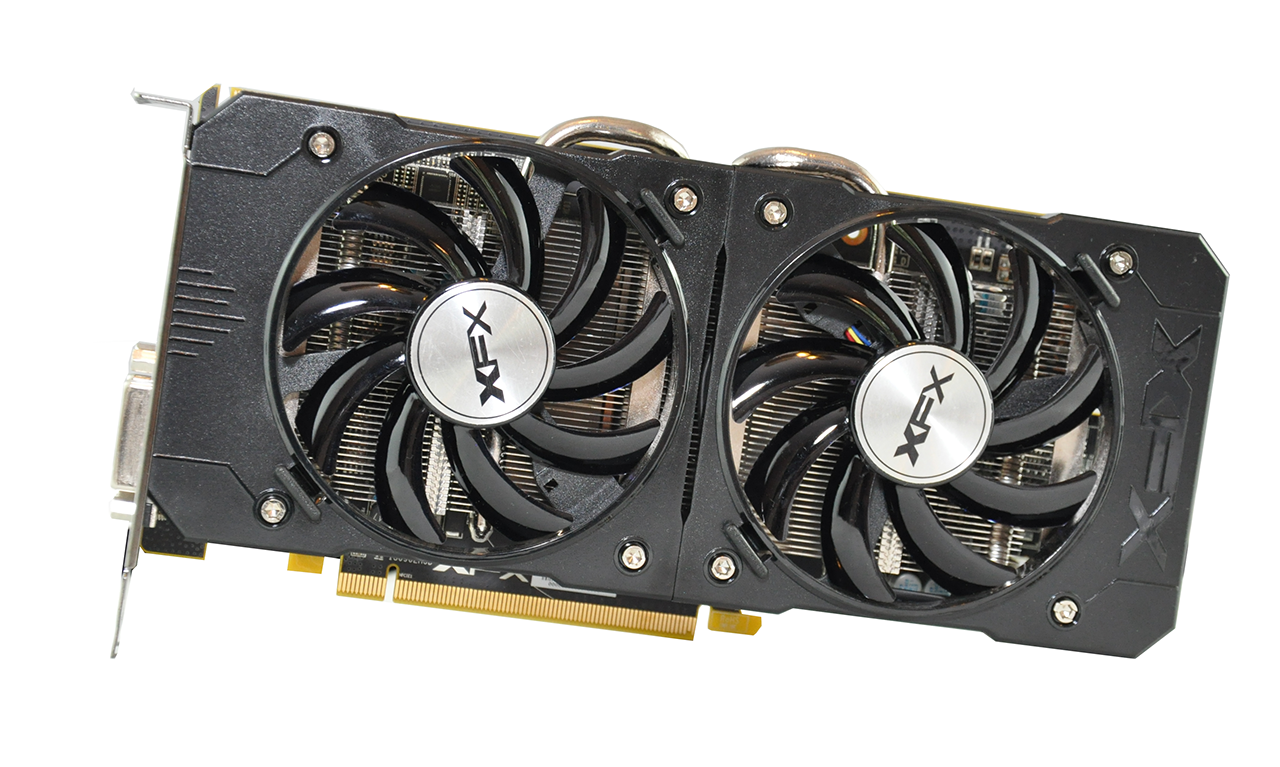XFX Radeon R7 370 2GB Black Edition Review
Why you can trust Tom's Hardware
Conclusion
AMD launched the Radeon R7 370 in June. At the time, it was targeting its competition from Nvidia. The GeForce GTX 750 Ti was never a value-oriented offering, and AMD must have believed it could nab a piece of that ~$150 segment without much effort. While it certainly outpaces the GTX 750 Ti by a significant margin, I don’t think AMD anticipated just how strong Nvidia’s newer card for that price point would be. The GTX 950 manages to best XFX’s R7 370 Black Edition in our entire benchmark suite with the exception of one overclocked result.
This is not to say the Radeon R7 370 is bad. It's simply a victim of circumstance. Had Nvidia’s GTX 750 Ti successor been delayed, the Pitcairn-based board would have been a clear winner. But AMD's competition came out swinging with an aluminum bat and nailed a home run.
Benchmark scores aside, XFX’s card does offer a few notable benefits. There's the cooling solution, first. Despite overclocking the GPU and memory to their maximums, we recorded temperatures quite a bit lower than other cards in the same price range. Before we started overclocking, the core never even hit 60 degrees.
That cooling comes at a price, though. In this case, you're going to suffer through more fan noise under load. The fans don’t stop spinning unless you turn your PC off or put it into hibernation. As a result, the card is never quite silent. It’s increasingly common for modern graphics cards to spin their fans all the way down under low load, yielding zero noise. Hit the XFX board with a taxing game, though, and you'll hear one of the loudest graphics cards I've tested in recent memory. It made so much noise that the fans overpowered the music I was listening to during my benchmark session.
It wasn’t long ago that you had to spend more than $200 to get the level of performance this card delivers for $170. The problem is that I can’t recommend it for the price because there are faster options for less money.
MORE: Best Graphics Cards For The MoneyMORE: All Graphics Articles
MORE: Graphics Cards in the Forum
Get Tom's Hardware's best news and in-depth reviews, straight to your inbox.
Kevin Carbotte is a contributing writer for Tom's Hardware who primarily covers VR and AR hardware. He has been writing for us for more than four years.
-
Achoo22 It would be nice if this article had proper links for reviews of the GTX950 that was being compared. I follow Tom's pretty closely, but I don't remember seeing the review and it isn't currently listed in the best-of-the-month column. It also would've been nice, for the sake of comparison, if the article mentioned the price delta between the card in question and the board that tested highest - in this case, it would've been nice to explain that the gtx960 is about $50 more than the r7 370 instead of merely referring to it as "the pricey 960."Reply -
cinergy Tom's bashing AMD yet again. Don't worry, soon they will be out of business and you can only buy your precious nvidia.Reply -
Mac266 ReplyTurn down the fan profile and it will magically become quiet.
And hot. It's a damn thin line. -
americanbrian I suspect the aggressive fan profile is to ensure the PCB components that do not contact the heatsink receive adequate airflow. I would be willing to bet that if you relax the fan profile your memory and voltage regulators start getting a bit hot.Reply
I have to say I am distinctly unimpressed with XFX third party cooling solutions. I have had a number of DD cooled GPU's and they are really bad. For example, one revision of the 7950 has blocked vents over the VRMs so no airflow at all. I had the rear fan blow out prematurely on a 7970. And on another 7950 the card throttled stock clocks until I increased the power limit. Overall just AVOID AVOID AVOID.
I recommend Sapphire Dual-x/vapour-x, tri-x and Gigabyte windforce third party cooling. MSI-gaming style has also given me problems similar to the XFX DD (failed rear fans, better solution overall though when working). -
Cryio This review is off .... The 380 performs slower than a 960 in the majority of the tests, which is strange, since the 380 is the faster card. Then .. all AMD cards have very low and consistently low minimum framerates, which again makes no sense. The 750 Ti even is a fast or faster in some tests compared to a 370, which is insane. The 750 Ti could NEVER reach HD 7850/265 levels, yet here it reaches and outpaces the a 370, which is a 265 that has more efficient memory modules and maybe a slight overclock.Reply
Also, the fact that a 100+ MHz increase on the core and 150-200 MHz increase on the memory did nothing to performance also is very weird.
